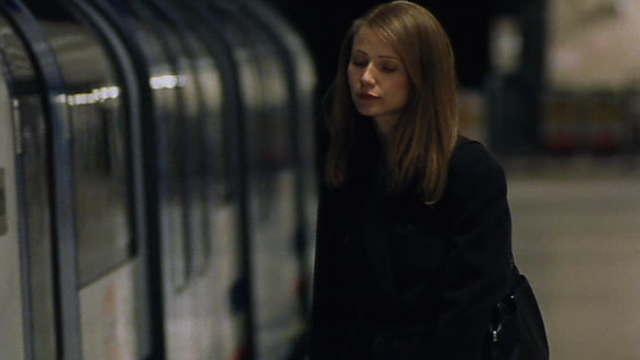Sliding Doors is an unavoidable cultural phenomenon. You know what it’s about – Gwenyth Paltrow tries to catch her train and the movie shows two divergent paths of her life continuing from the exact moment that the train’s sliding doors either allow her through or shut in her face.
Except that’s not really a full description of what the story is about. What made her late for the train in the first place? What is the event after the train ride that puts her timelines on different trajectories? Where do the different paths lead?
I know there’s people who can recall the specifics of Sliding Doors, likely more than most movies over twenty years old have. But I’d submit that it’s a film with a rare kind of ubiquity, where only the conceit, divorced from any details of the story (other than the titular doors themselves), has endured in the popular consciousness. The idea has inspired episodes of everything from Frasier to Bob’s Burgers to The Unbreakable Kimmy Schmidt. I’d expect a general understanding if I said a story is like Sliding Doors. I would not assume automatic comprehension if I referred to any other aspect of the movie (cast, director, plot point) save perhaps Paltrow who was reaching her career apex in 1998, the same year she had an Oscar-winning role in Shakespeare in Love.
Compare this to that other classic romantic comedy with tricky time and causality, Groundhog Day. That movie’s high concept has also lived a robust life. For years it was the go-to model of single-day time loop stories until a patent apparently expired around the release of 2014’s Edge of Tomorrow and now we’re awash in Happy Death Days and Russian Doll episodes and the like. But even when it was the sole exemplar of the genre, the details of Groundhog Day – Ned Ryerson calling “It’s a doozy!” or Punxsutawney Phil’s wild ride or just the general gist that Bill Murray has to improve his life to exit the loop – lived on as well.
A recent discussion brought out some other possible examples of films overshadowed by their own high concepts ala Sliding Doors. scb0212 pointed out that Rashomon has become shorthand for a structure that retells portions of a story from multiple memories even with (or perhaps due to) a lack of knowledge of Rashomon‘s own story. Babalugats pointed out how the term “gaslighting” has entered the public consciousness to a degree, I would argue, that leaves the actual movie Gaslight far behind.
If there’s a common element to which high concepts outpace their origins, I’m guess it’s the way they describe something that isn’t already in the lexicon. “What if”s predate the movies but before Sliding Doors I’m not sure we had a universal term for the location of a “what if” moment. We’ve all experienced tricks of memory, feelings of regret, and suspicions of the world around us and the other titles mentioned describe these things to various degrees.
Which ones did we miss, Soluters? What films have concepts that reach higher than the films that delivered them? What does it take for a film’s concept to endure in cultural consciousness?

